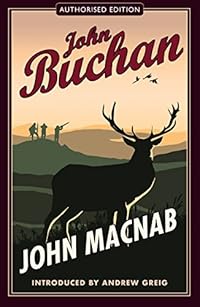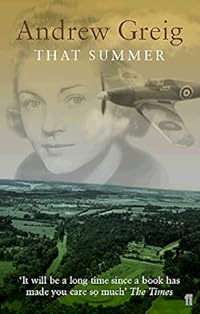A Modern Romance. faber and faber, 2002, 312 p.
Love, sex and death. Of the three main preoccupations of the novelistic art only the last might truly be expected from what is a deeply Scottish novel. But as its subtitle suggests, Andrew Greig’s first novel Electric Brae is a love story. And while a modern romance can also be expected to deal with sex what there is here is not graphic and is absolutely necessary to the tale.
The generally linear narrative isn’t entirely straightforward and moves from first to third person and back again, ditto from past to present tense, but does so seemingly naturally, without jarring, and also uses Scots words and phrases organically and unapologetically.
Set against a background of the transition to, and the years of, Thatcher’s premiership and the jolt to the Scottish psyche that produced, the story starts with the meeting, on a mountain in Glencoe, between Jimmy Renilson, an engineer on the rigs whose voice bears most of the narration duties, and the man who becomes his best friend and climbing partner, the committed socialist Graeme. This is before we encounter the love interest, Kim Russell (though it’s really Ruslawska,) a woman about ten years younger than Jimmy and possessed of eyes that beguile him. As these three plus Graeme’s girlfriend Lesley and others in their circle orbit round each other the course of true love – here explicitly acknowledged as an addiction – fails to run smooth. It rarely does, or else we’d have no story; and the canon of literature would be rather empty.
Kim is a troubled soul, given to self-harm and driven to produce art works that fail to assuage the core of her angst. “All art is exaggeration,” she says, “that’s the trouble with it.” But all the characters give off the air of real breathing people, except perhaps for Mick DeTerre, an anti-establishment activist, who seems too broad brush.
Significant locations in the book roam all over Scotland, ranging from Eyemouth in the Southeast, up to Aberdeen, Orkney and later Shetland, Fort William and Ben Nevis in the West, Dunbar notably, and finally Prestwick. The art of rock climbing and some individual Scottish climbs are described at various points. It is a longstanding ambition of Graeme and Jimmy that they will one day “knock off” the Old Man of Hoy, preferably together.
Without shying away from the sentimentality that can lurk beneath the reserve, the novel does however touch on the heart of Scottishness and what differentiates it from its southern neighbour, in especial the inability of the Scottish male to acknowledge “the squishy stuff” of emotion, to admit even to friendship.
It addresses too the Scots shrinking from pretentiousness. At one point Jimmy remembers Lesley telling him that, “Graeme must conclude any intelligent statement with an expletive. As if to apologise for his articulacy,” adding for our benefit, “Clinging to the wreckage Lesley calls it.” Graeme says, in contrast to Scotland about the Falklands War, [Editorial insert:- sorry; police action] “England’s gone off its heid wi this war,” and on the failure of the miners’ strike, “Everyone for themselves these days, eh? It’s no the Scottish way.”
Jimmy himself has more than a few observations about Scotland and the Scots:-
“Deferred gratification, we love it. It lets us square Calvinism with hedonism.”
“Who are we? I wondered. We don’t even speak consistently. We’ll say ‘yes’ and ‘aye’ and ‘yeah’ in the same conversation, alternate between ‘know’ and ‘ken’,1 ‘bairn’, ‘wean’ and ‘child’2 and not even know why.”
“We’re a small country with blurry boundaries.”
“Have I mentioned that good sex is wonderful, a human joy, even in Scotland?”
Of the places listed over the radio in his childhood as in danger of snow and ice, “Some places, like some people, you love before you’ve ever met,” and on being accused of sentimentality over his love of the Scottish landscape, “Someone said sentimentality is the expenditure of emotion on an unworthy object. Do you think this country’s unworthy?”
“We’re living in a banana republic that disnae even have its ain government to be corrupted.”
“Scots prefer the bludgeon of sarcasm,” (rather than use irony.)
“A culture of stoic suffering is limiting but has its uses.”
He notes after a sojourn abroad that, “while he’d been away the value of property had gone up and on the whole that of people had gone down,” and “Great to be back in Scotland, the home of constructive criticism,” along with, “Judging by the estate agent’s at the top of the wynd, where people used to have a home, now clients invested in a property.”
“Mrs Thatcher had done us one great service for she was a litmus test. Three times she dipped the UK into her solution and each time the bottom part came out blue and the top pinker than the time before. We had forgotten we were different, and that difference went deeper than a taste for haggis, Murrayfield and Hampden and an inability to take seriously anyone called Nigel.” [Editorial insert:- This last sentiment, true enough when Electric Brae was first published in 1992, has become even more apposite in the past decade.]
He complains to a later lover, the Englishwoman Ruth, “All this stuff everyone talks about these days, about taking responsibility, taking charge, taking decisions, taking on board – it sounds like too much taking to me.” “Jimmy,” she said, “you’ll never adjust to the Eighties. That’s why I live up here – because most of you still believe the dream might just work. You still seem to think we’re interdependent… You won’t find many still believe that down South.”
Jimmy also sums up the Scottish mind-set, “You’re asking me to think, to come clean at this hour in the morning, with three-hundred close-hearted, tight-lipped Protestant years sitting on my neck?” More generally he muses, “Climbing’s no dafter than roping your happiness to someone else,” and, “It was hard but nothing compared to what we do to each other.”
Though the author does let Jimmy off a large moral hook a touch too easily near the end (though not an arguably greater one) and the symbolism is at times forced, all in all this is superb stuff, about the importance of relationships and mutual dependency.
And the Electric Brae? Apart from being one of the place names in the radio snow reports it is not mentioned at all in the book except in the excerpt from A Fly Fisherman’s Guide by H O N MacCaig that is quoted as a frontispiece. The Brae itself is a hill in Ayrshire that seems to defy gravity. In this sense of disorientation it is a great descriptor for the appearance of madness that love can take.
1If you’re from the East coast.
2“bairn” and “child” if you’re from the East coast, “wean” and “child” if you’re from the West.
Pedant’s corner:- “Next weekend I’d cragging again with Graeme.” “born away on a receding tide” (borne) Lichtenstein (Liechtenstein.) “The longer you stay, bigger the bill will be when you leave.” Glamourous. “It didn’t looked played much.” “He stared back the Old Man.” Seperate. “Half of last the night.” “She hadn’t asked me too” (“asked me to” makes more sense,) Betty (Bette?) Davis, Casopeia (Cassiopeia) glaxy (galaxy,) self-centered (self-centred,) schlerosis (sclerosis,) whaft (waft,) whispy (wispy,) a whailing (wailing?) wall, smoothes.
Several Scots words appeared in unusual spellings; greit (for weep) is more usually greet, fousty (foosty or at a pinch foostie,) bisom (a rare variant of besom,) plouk (plook,) cheuchter (definitely teuchter,) wheich (definitely wheech.)



